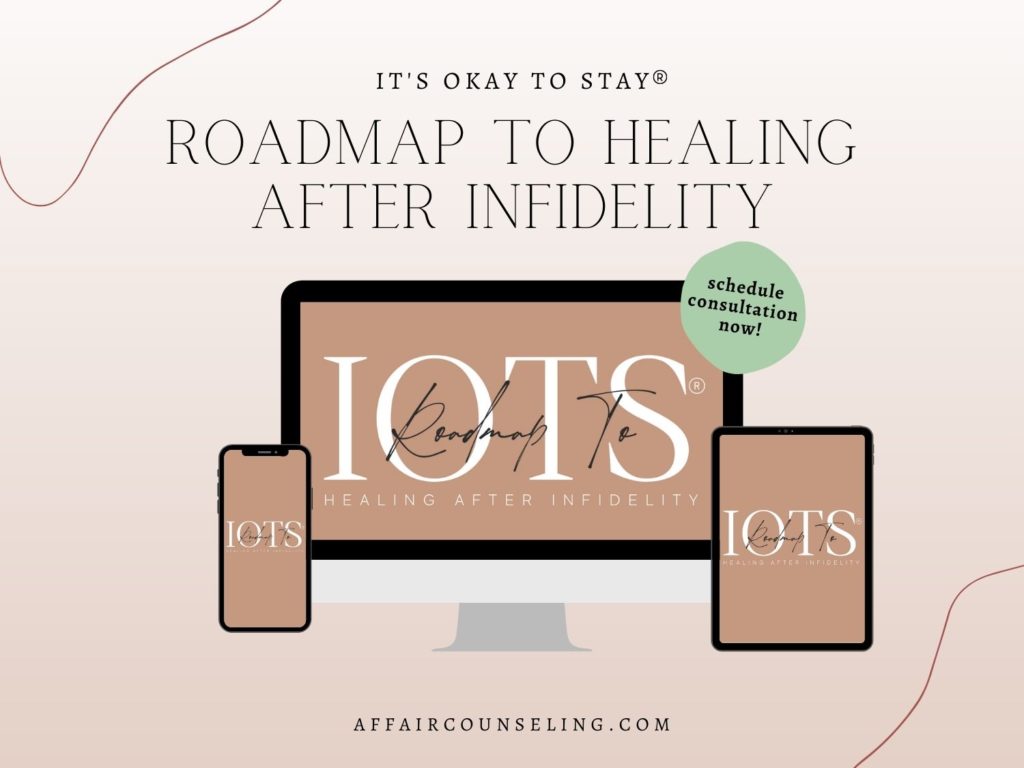In the aftermath of infidelity, what does a hurt partner need most?
Think about that question for a moment. What thoughts come to mind?
Most people, including unfaithful partners, or even therapists answer the same way. Hurt partners need true remorse from the betrayer, to forgive, and to know why among other things.
Of course, these things are true and important. But, the most fundamental thing a betrayed partner needs is for their pain to be heard.
There is No Healing without Hearing in Affair Recovery
Imagine this:
 A middle-class family is living and growing together. This family is made up of 40-ish parents with 3 children 2 of which are teens. The wife and mother, Mary, worked up until the first child was born. But, she chose to be a stay-at-home mother while her children were young. Now that the youngest is school-age, she contemplates returning to her career.
A middle-class family is living and growing together. This family is made up of 40-ish parents with 3 children 2 of which are teens. The wife and mother, Mary, worked up until the first child was born. But, she chose to be a stay-at-home mother while her children were young. Now that the youngest is school-age, she contemplates returning to her career.
Meanwhile, her husband, Jim, financially supports the family. He works hard and travels often. So, the family enjoys financial stability. They lead an enviable lifestyle complete with private schools and resort-style vacations.
When Mary finds out her husband has been having a year-long affair, she feels crushed. Yet, she decides to try and save the relationship. She and Jim work towards recovering from an affair.
But, there is a major problem: Mary feels stuck. She is filled with anger and rage. Unfortunately, she feels like there is no outlet to express her feelings.
- She can’t cry because the kids don’t know anything.
- Mary can’t tell anyone because she knows how this type of gossip spreads like wildfire.
- She can’t share with her family because she fears they’ll never forgive him.
And what happens when she and Jim try to talk this out? Well, things soon go wrong. She ends up lashing out and Jim gets defensive or shuts down. When she tries to talk to Jim about how she is feeling, things go south fast. She ends up lashing out at him. Then, he gets defensive or instead shuts down.
What a mess!
So, what about you?
Do you have a similar story of recovering from an affair? If so, you aren’t alone. I’ve heard variations of this scenario for years. There is such loneliness accompanying the aftermath of infidelity. These feelings of isolation can make both partners feel like they’re going crazy. It can be crazy-making for both partners.
Sadly, there are few opportunities for a hurt partner to express their pain or be heard. That inability to feel heard, acknowledged, and validated makes it impossible to heal.
The Experts Agree: Non-defensive Listening Is Key to Turning a Marriage Around in Affair Recovery
The Gottman Institute addresses this very thing. They break down their approach to treating affairs into three phases. Atone, Attune, and Attach.
Atone:
The first phase, atone, specifically involves hearing the betrayed partner’s pain. To benefit most from this relationship work, the unfaithful partner must listen in a non-defensive and patient way. They must allow their wounded partner to express their thoughts and emotions in the open.
To further underscore the hurt partner’s need for expression, author and expert in the area of extramarital affairs, Peggy Vaughan, reveals the results of an empirical study explored in her book Monogamy Myth.
Dr. Vaughan studied people who anonymously wrote about their affairs online. She identified key differences between which relationships recovered and which failed. She found that couples who stayed together talked through the affair. They shared their thoughts in an open and thorough manner. Couples who tried to move forward without discussing the affair enough often didn’t make it.
The takeaway?
It’s is essential for the unfaithful partner to express remorse. It is also vital for them to listen to their partner’s thoughts and feelings in a non-defensive way. They must also be transparent when answering the hurt partner’s questions. Regardless of if the answer could cause pain.
This isn’t easy. But, relationship expert Dr. Shirley Glass counseled couples in a similar way. She wrote about it in her book Not Just Friends.
 So, Now You Know the Hurt Partner Must Be Heard… An Affair Recovery Program Can Help You Make Sure This Happens.
So, Now You Know the Hurt Partner Must Be Heard… An Affair Recovery Program Can Help You Make Sure This Happens.
I can tell you that this is a priority in my global affair recovery program. As a couples therapist and affair recovery expert, I will not behave as betrayed partners do. I will not encourage a hurt partner to move on, stop obsessing, and start fixing the marriage too soon. This is not productive. Neither the partner nor the therapist should move forward before the hurt partner’s pain is heard.
Here are some things you can both do to make sure you’re not moving on too fast or tending to related issues before hearing the hurt partner clearly and fully.
The Unfaithful Partner’s Tasks for Hearing The Hurt Partner in Affair Recovery:
- Be compassionate when your hurt partner shares how the affair hurt them. Listen carefully, acknowledge honestly, and validate your partner’s feelings in an open way. DO NOT get defensive.
- Don’t make the responsibility to talk about their pain theirs and theirs alone. Make it your duty to ask questions and check in on your partner. See how they are doing, even if they seem okay.
- Make the time and prioritize your talks. You should be talking about this every day in the beginning. If you have children, go for a walk together or hire a babysitter. Do whatever you deem necessary. Don’t put it off, avoid it, or neglect this phase of recovery. If you do, you will likely regret it.
The Hurt Partner’s Tasks for Expressing Their Pain Fully in Affair Recovery
Do you think that all you have to do is talk about your pain? Often, sharing is a more complicated process. You may think that all you have to do is talk about your pain. But, sharing is often more complicated than that.
- Take the time to let your partner know you need to talk. Say something like “I need you to hear this and just listen.” Don’t swallow the pain. It only makes the hurt more intense and guarantees a blow-up at some point in the future.
- Maintain a support system. Yet, do keep in mind that your partner needs to hear and acknowledge what they did to you. Confiding in others will not suffice if healing your marriage is the goal.
- Talk about how you feel in regards to the affair. Share what it’s like to cope with your spouse’s betrayal. Refrain from lashing out, name-calling, or issuing harsh criticism. Verbal assault will only cause your partner to withdraw and lock themselves in their “shame room.” That’s when withdrawal becomes additionally agonizing and hurtful.
The Takeaway
All in all, these three vital tasks for each partner enable the very important hearing of the pain.
To paraphrase Esther Perel (one of my favorite couples therapists), “this is when you talk about what the affair did to the hurt spouse”. Later on, you will talk about what the affair meant to the unfaithful partner. Make sure you don’t mix the two.
I do hope this was helpful and that you have a few more tools in your toolbox to start expressing and hearing affair-related pain. I know how tough it is to begin affair recovery, but I have faith in you.
Take Action – Let Us Help You.
This episode is brought to you by:
Being our Infidelity Recovery Program
Thank you for taking the time to read this post! If you are in need of support, I would be happy to help repair your relationship! Please consider a 45-minute free consultation to see if my infidelity recovery program can help you heal and regain trust. I offer support from my Miami, FL-based counseling practice. To start your recovery journey, please follow these simple steps:
- Visit here to pick a time
- Meet with me for an in-depth conversation via Zoom.
- Start having your pain heard, and overcome infidelity
Other Services Offered with Idit Sharoni
Our infidelity recovery program isn’t the only service offered at our Miami FL-based counseling practice. Other mental health services our team offers include affair counseling, communication counseling, and online therapy. For more useful relationship information, please visit my podcast.
Heading

